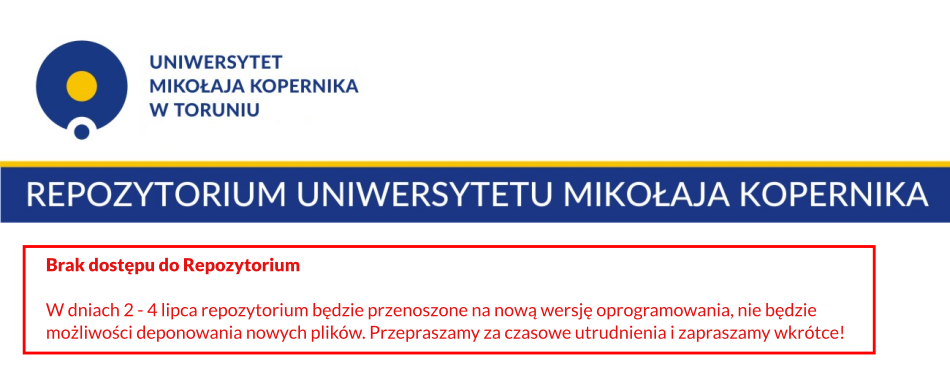Artykuły (WHum) Przeglądanie wg autora "Żywiczyński, Przemysław"
Wyświetlono pozycje 1-20 z 24
-
Żywiczyński, Przemysław; Orzechowski, Sylwester; Wacewicz, Sławomir (John Bejnamins, 2017-09)Turn-taking – the coordinated and efficient transition between the roles of sender and receiver in communication – is a fundamental property of conversational interaction. The turn-taking mechanism depends on a variety ...
-
Żywiczyński, Przemysław (Wydawnictwo Naukowe Uniwersytetu Mikołaja Kopernika, 2012)The article reflects on different aspects of politeness theory viewed from the ethological and evolutionary perspective. The author offers an explanation of politeness phenomena along proxemic lines – accordingly, politeness ...
-
Wacewicz, Sławomir; Żywiczyński, Przemysław; Chiera, Alessandra (2017)The cooperative character of language is an empirical fact and one of the key tenets in linguistics. However, this cooperative character is what makes it evolutionarily suspect: under normal circumstances sharing honest ...
-
Wacewicz, Sławomir; Żywiczyński, Przemysław (2014-04-30)The emergence of the uniquely human ability to acquire and use language has invariably been perceived as a problem that is both exceptionally difficult and intriguing. Conjectures regarding the sources of language have ...
-
Sibierska, Marta; Żywiczyński, Przemysław; Zlatev, Jordan; van de Weijer, Joost; Boruta-Żywiczyński, Monika (2023-08-21)Pantomime is a means of bodily visual communication that is based on iconic gestures that are not fully conventional. It has become a key element in many models of language evolution and a strong candidate for the original ...
-
Placiński, Marek; Matzinger, Theresa; Baumann, Andreas; Żywiczyński, Przemysław; Hartmann, Stefan; Boehm, Irene; Pleyer, Michael; Wacewicz, Sławomir (The Evolution of Language Conferences, 2024)The cooperative nature of human communication is widely accepted as a fact at least since Grice. In this study, we investigate whether a form of linguistic cooperation – structural alignment – correlates with cooperative ...
-
Adornetti, Ines; Ferretti, Francesco; Chiera, Alessandra; Wacewicz, Sławomir; Żywiczyński, Przemysław; Deriu, Valentina; Marini, Andrea; Magni, Rita; Casula, Laura; Vicari, Stefano; Valeri, Giovanni (Frontiers, 2019-06-18)Impairments of motor representation of actions have been reported as a core component of autism spectrum disorders (ASD). Individuals with ASD have difficulties in a number of functions such as assuming anticipatory postures, ...
-
Muehlenbernd, Roland; Żywiczyński, Przemysław; Wacewicz, Sławomir (Wydawnictwo Naukowe Uniwersytetu Mikołaja Kopernika, 2018)Unlike many facets of language – phonology, syntax, semantics or even prag- matics – linguistic politeness (LP) has attracted little attention of evolutionarily minded researchers. We think that this lack of ...
-
Wacewicz, Sławomir; Żywiczyński, Przemysław (2015-01-31)Although many of the recent controversies in the field of language evolution research are empirical, the deepest divides seem to remain theoretical in nature. Specifically, defining language in incompatible ways has led ...
-
Żywiczyński, Przemysław (Wydawnictwo Uniwersytetu Gdańskiego, 2020)Nauka o ewolucji języka nie podjęła jeszcze szeroko zakrojonych badań nad prozodią, choć refleksja nad zjawiskami prozodycznymi pojawia się w wielu teoriach powstania języka. Celem rozdziału jest wskazanie tych stanowisk, ...
-
Żywiczyński, Przemysław (De Gruyter Poland, 2020-02)Since its inception in the second part of the 20th century, the science of language evolution has been exerting a growing and formative pressure on linguistics. More obviously, given its interdisciplinary character, the ...
-
Danel, Dariusz; Wacewicz, Sławomir; Lewandowski, Zdzisław; Żywiczyński, Przemysław; Perea-Garcia, Juan Olvido (Springer, 2018-10)Understanding the adaptive function of the unique morphology of the human eye, in particular its overexposed white sclera, may have profound implications for the fields of evolutionary behavioural science, and specifically ...
-
Wacewicz, Sławomir; Żywiczyński, Przemysław (2018-04-26)In this paper, we complement proximate or ‘how’ explanations for the origins of language, broadening our perspective to include fitness-consequences explanations, i.e. ultimate, or ‘why’ explanations. We identify the ...
-
Wacewicz, Sławomir; Żywiczyński, Przemysław; McCrohon, Luke (2015-01-31)Linguistic politeness (LP) refers to the set of “linguistic features mediating norms of social behaviour, in relation to such notions as courtesy, rapport, deference and distance” (Crystal 2008). Although researchers (e.g. ...
-
Zlatev, Jordan; Żywiczyński, Przemysław; van de Weijer, Joost; Wacewicz, Sławomir (John Bejnamins, 2017-11)A persistent controversy in language evolution research has been whether language emerged in the gestural-visual or in the vocal-auditory modality. A “dialectic” solution to this age-old debate has now been gaining ground: ...
-
Zlatev, Jordan; Devylder, Simon; Wacewicz, Sławomir; Żywiczyński, Przemysław; Ferretti, Francesco; Adornetti, Ines; Chiera, Alessandra (Wydawnictwo Naukowe Uniwersytetu Mikołaja Kopernika, 2018)We present an ongoing international project, From Pantomime to Language (PANTOLANG), aiming to develop a comprehensive, empirically grounded theory of the evolution of human language and the human mind, relying on the new ...
-
Wacewicz, Sławomir; Żywiczyński, Przemysław (2019-11-25)Could pantomime have been the key step in the evolutionary emergence of symbolic communication? Such a possibility has been consistently present in the intellectual reflection on language origins. What makes pantomime ...
-
Matzinger, Theresa; Pleyer, Michael; Żywiczyński, Przemysław (MDPI, 2023-01-13)Speech pauses between turns of conversations are crucial for assessing conversation partners’ cognitive states, such as their knowledge, confidence and willingness to grant requests; in general, speakers making longer ...
-
Orzechowski, Sylwester; Wacewicz, Sławomir; Żywiczyński, Przemysław (2016)Hipotezy pierwszeństwa gestów, względnie gesturalne, zajmują centralne miejsce w aktualnych rozważaniach nad pojawieniem się i ewolucją ludzkiej zdolności językowej. Zgodnie z nimi język filogenetycznie wywodzi się od ...
-
Żywiczyński, Przemysław; Orzechowski, Sylwester; Wacewicz, Sławomir (Language & Communication, 2016)In everyday circumstances, humans use a variety of cues to draw rich inferences about the nature of interaction. Among these, we focus on sequences of self-regulatory movements, such as touching behaviours and postural ...
Wyświetlono pozycje 1-20 z 24
Szukaj w repozytorium
Przeglądaj
-
Całe repozytorium
-
Bieżąca kolekcja
